Arts & Entertainment
Gem from another era
Philly-set 1924 drawing room comedy ‘The Show Off’ gets delightful revival
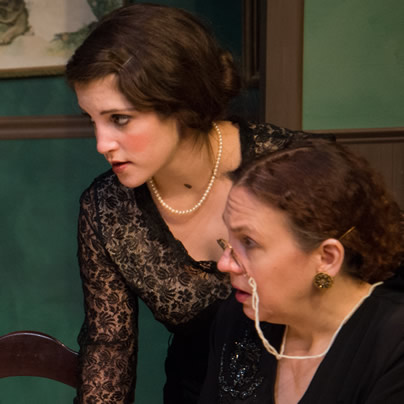
‘The Show-Off’
Through Feb. 2
American Century Theater
Gunston Performing Arts Center, Theatre II
2700 South Lang Street, Arlington
$35-$40
703-998-4555
americancenturytheatre.org
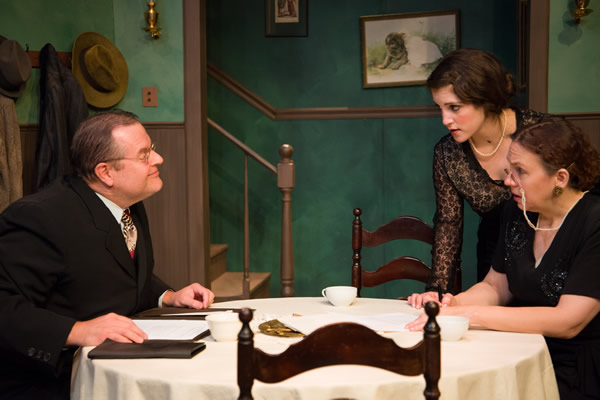
From left, Joe Cronin, Jenna Berk and Lee Mikeska Gardner in ‘The Show-Off.’ (Photo by Johannes Markus; courtesy of the American Century Theater)
Everyone’s met an Aubrey Piper, the obnoxious title character in George Kelly’s 1924 comedy “The Show-Off.” Loud, boastful, desperate for attention, Aubrey is a nightmare in an obvious toupee and a liar to boot. But lucky for most of us, unlike the Fishers, the good folks featured in Kelly’s play, we don’t have an Aubrey marrying into the family.
At 90, Kelly’s play is windy but fundamentally funny precisely because it deals in familiar, time-resistant types. “The Show-off” got its start as a big Broadway hit and subsequently enjoyed revivals and was adapted to the screen more than once. Currently, it’s in production at Arlington’s American Century Theater, a company committed to promoting 20th century plays as a vital part of today’s cultural dialogue.
The show opens with Mrs. Fisher (Lee Mikeska Gardner) dishing the dirt with her sensible, well-married daughter Clara (Jenna Berk). It seems Aubrey (David Gram) has been coming to call on the Fishers’ younger daughter Amy (Erin E. McGuff) every Wednesday and Sunday evening without fail. Not content to woo his giggly girlfriend privately in the offstage parlor, Aubrey brings his corny jokes, tall tales and off key singing center stage to the living room where Amy’s parents and her inventor brother Joe (Evan Crump) are trying to pass a quiet evening at home. A solid working class family with a comfortable house in northern Philadelphia, the Fishers can’t understand what their daughter sees in the phony low paid freight clerk posing as a Pennsylvania Railroad big shot.
By act two the Fishers’ worst fears are realized: Aubrey and Amy are married. By act three, it gets even worse, and finally a little better. At the end, Clara begins to soften. Locked in a lonely marriage, she is charmed by Aubrey’s sincere love for her sister. And though he doesn’t pull a big salary, Aubrey does go to work every day. In the end, despite — or more likely because of — his borderline con artist ways, Aubrey brings a boon to the family. Will he again in the future? That’s unclear.
Set in the playwright George Kelly’s native Philadelphia, the comedy is filled with references to streets and neighborhoods including the downtown area where Clara’s detached husband Frank (Nello DeBlasio) first spotted Aubrey (he’s hard to miss with jaunty fedora, walking stick and red carnation), and the busy intersection where Aubrey runs down a cop.
George Kelly was enormously popular in the ‘20s and early ‘30s. Today, aside from being movie star Grace Kelly’s uncle, he is best known for “The Show-Off” and his Pulitzer Prize-winning drama “Craig’s Wife,” a morality tale about a controlling woman who values a pristine home above family and friendship. (The latter was adapted for the screen in ‘50s as “Harriett Craig,” a juicy mid-career vehicle for none other than real life clean freak Joan Crawford). Kelly was also gay, and not surprising for the time, carefully closeted. He maintained a 55-year relationship with partner William Weagley.
Uniformed in her apron and rolled down hose, Mikeska Gardner’s Mrs. Fisher is a feisty but warmhearted and uncomplicated homemaker. Sometimes she plays her a bit simple but never a fool. Similarly, Gram’s Aubrey even at his most over-the-top, third rate vaudevillian weirdness, is no fool either. It’s a good thing too. The play wouldn’t work otherwise.
Ably directed by Stephen Jarrett, the talented nine-person cast is especially cohesive. Set designer Leigh-Ann Friedel’s living room is handsome and realistic, well suited to Kelly’s durable play. (Kelly had no time for the modernism and more experimental theater forms en vogue in his heyday). Showing great attention to detail, Erin Nugent successfully clothes the cast through numerous costume changes on a presumably not huge budget.
Once again, The American Century Theater has fulfilled its mission by plucking and mounting a charming seldom-produced show from the American repertoire. See it while you can.
Theater
José Zayas brings ‘The House of Bernarda Alba’ to GALA Hispanic Theatre
Gay Spanish playwright Federico García Lorca wrote masterpiece before 1936 execution

‘The House of Bernarda Alba’
Through March 1
GALA Hispanic Theatre
3333 14th St., N.W.
$27-$52
Galatheatre.org
In Federico García Lorca’s “The House of Bernarda Alba,” now at GALA Hispanic Theatre in Columbia Heights, an impossibly oppressive domestic situation serves, in short, as an allegory for the repressive, patriarchal, and fascist atmosphere of 1930s Spain
The gay playwright completed his final and arguably best work in 1936, just months before he was executed by a right-wing firing squad. “Bernarda Alba” is set in the same year, sometime during a hot summer in rural Andalusia, the heart of “España profunda” (the deep Spain), where traditions are deeply rooted and mores seldom challenged.
At Bernarda’s house, the atmosphere, already stifling, is about to get worse.
On the day of her second husband’s funeral, Bernarda Alba (superbly played by Luz Nicolás), a sixtyish woman accustomed to calling the shots, gathers her five unmarried daughters (ages ranging from 20 to 39) and matter-of-factly explain what’s to happen next.
She says, “Through the eight years of mourning not a breeze shall enter this house. Consider the doors and windows as sealed with bricks. That’s how it was in my father’s house and my grandfather’s. Meanwhile, you can embroider your trousseaux.”
It’s not an altogether sunny plan. While Angustias (María del Mar Rodríguez), Bernarda’s daughter from her first marriage and heiress to a fortune, is betrothed to a much younger catch, Pepe el Romano, who never appears on stage, the remaining four stand little chance of finding suitable matches. Not only are they dowry-less, but no men, eligible or otherwise, are admitted into their mother’s house.
Lorca is a literary hero known for his mastery of both lyrical poetry and visceral drama; still, “Bernarda Alba’s” plotline might suit a telenovela. Despotic mother heads a house of adult daughters. Said daughters are churning with passions and jealousies. When sneaky Martirio (Giselle Gonzáles) steals the photo of Angustias’s fiancé all heck kicks off. Lots of infighting and high drama ensue. There’s even a batty grandmother (Alicia Kaplan) in the wings for bleak comic relief.
At GALA, the modern classic is lovingly staged by José Zayas. The New York-based out director has assembled a committed cast and creative team who’ve manifested an extraordinarily timely 90-minute production performed in Spanish with English subtitles easily ready seen on multiple screens.
In Lorca’s stage directions, he describes the set as an inner room in Bernarda’s house; it’s bright white with thick walls. At GALA, scenic designer Grisele Gonzáles continues the one-color theme with bright red walls and floor and closed doors. There are no props.
In the airless room, women sit on straight back chairs sewing. They think of men, still. Two are fixated on their oldest siter’s hunky betrothed. Only Magdelena (Anna Malavé), the one sister who truly mourns their dead father, has given up on marriage entirely.
The severity of the place is alleviated by men’s distant voices, Koki Lortkipanidze’s original music, movement (stir crazy sisters scratching walls), and even a precisely executed beatdown choreographed by Lorraine Ressegger-Slone.
In a short yet telling scene, Bernarda’s youngest daughter Adela (María Coral) proves she will serve as the rebellion to Bernarda’s dictatorship. Reluctant to mourn, Adela admires her reflection. She has traded her black togs for a seafoam green party dress. It’s a dreamily lit moment (compliments of lighting designer Hailey Laroe.)
But there’s no mistaking who’s in charge. Dressed in unflattering widow weeds, her face locked in a disapproving sneer, Bernarda rules with an iron fist; and despite ramrod posture, she uses a cane (though mostly as a weapon during one of her frequent rages.)
Bernarda’s countenance softens only when sharing a bit of gossip with Poncia, her longtime servant convincingly played by Evelyn Rosario Vega.
Nicolás has appeared in “Bernarda Alba” before, first as daughter Martirio in Madrid, and recently as the mother in an English language production at Carnegie Melon University in Pittsburgh. And now in D.C. where her Bernarda is dictatorial, prone to violence, and scarily pro-patriarchy.
Words and phrases echo throughout Lorca’s play, all likely to signal a tightening oppression: “mourning,” “my house,” “honor,” and finally “silence.”
As a queer artist sympathetic to left wing causes, Lorca knew of what he wrote. He understood the provinces, the dangers of tyranny, and the dimming of democracy. Early in Spain’s Civil War, Lorca was dragged to the the woods and murdered by Franco’s thugs. Presumably buried in a mass grave, his remains have never been found.
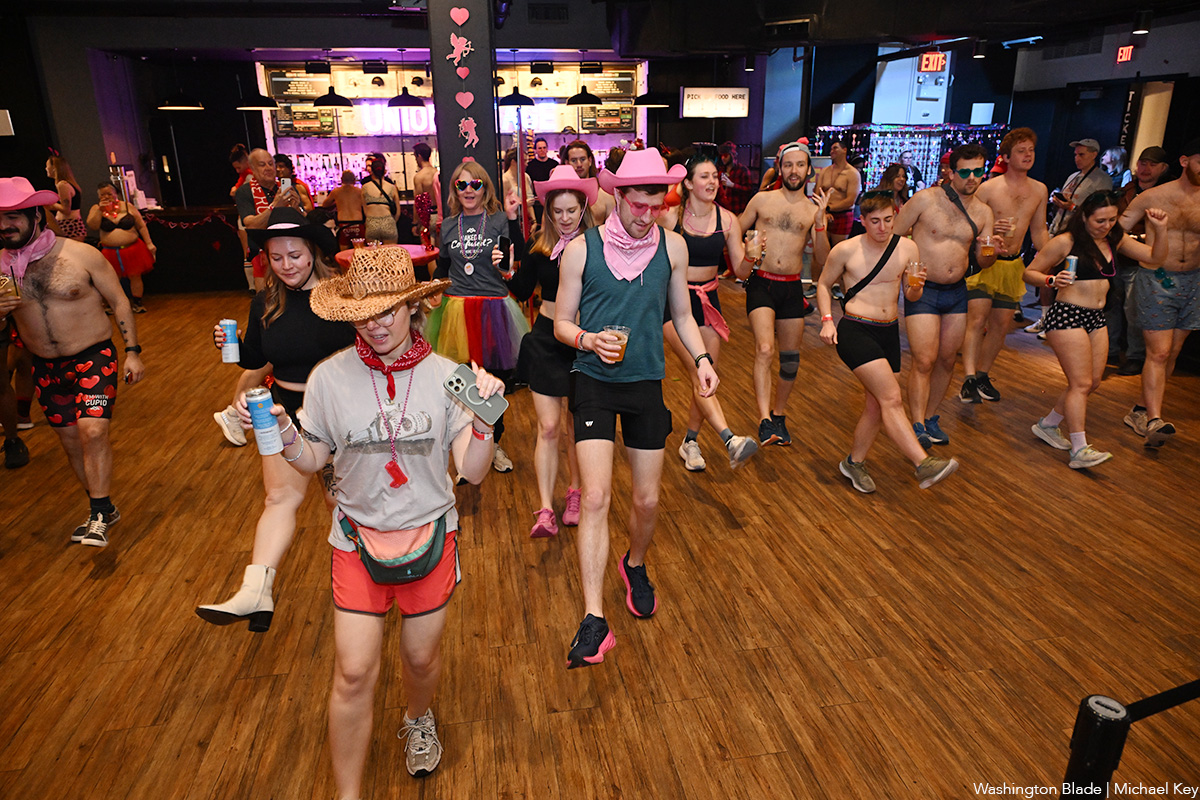
Cupid’s Undie Run, an annual fundraiser for neurofibromatosis (NF) research, was held at Union Stage and at The Wharf DC on Saturday, Feb. 21.
(Washington Blade photos by Michael Key)
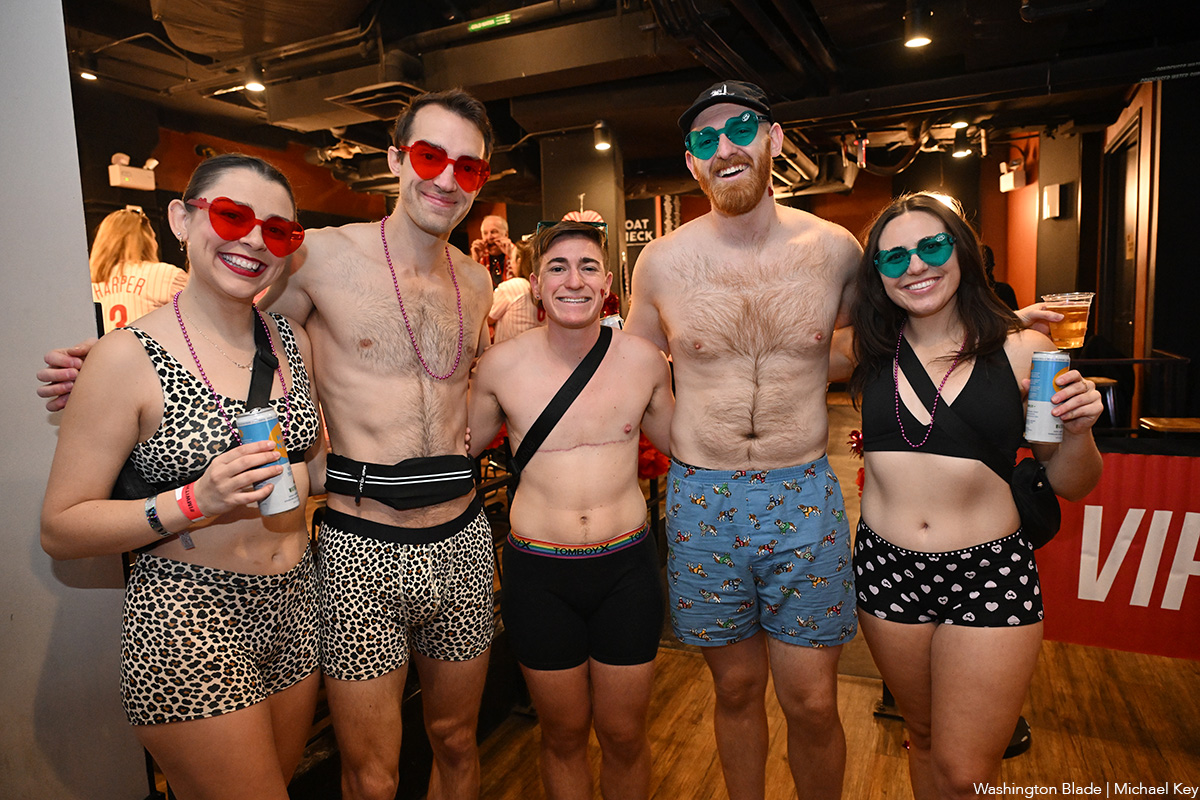
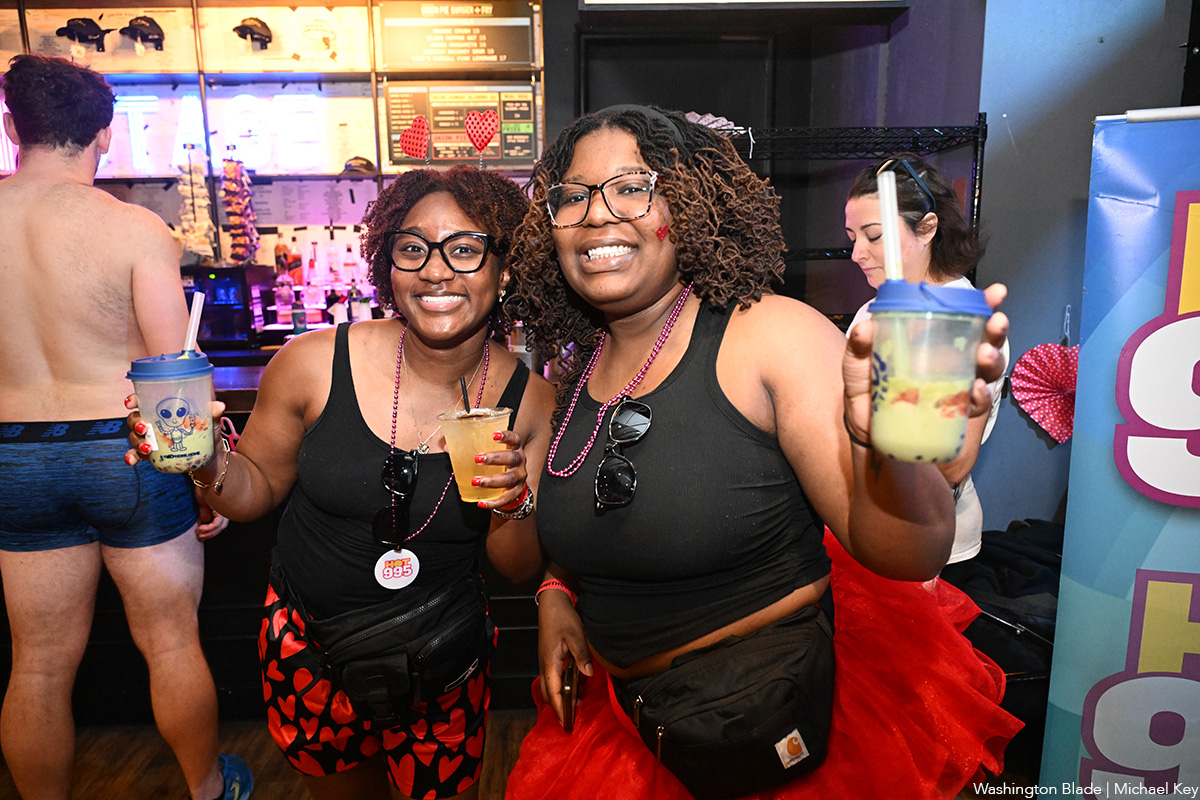
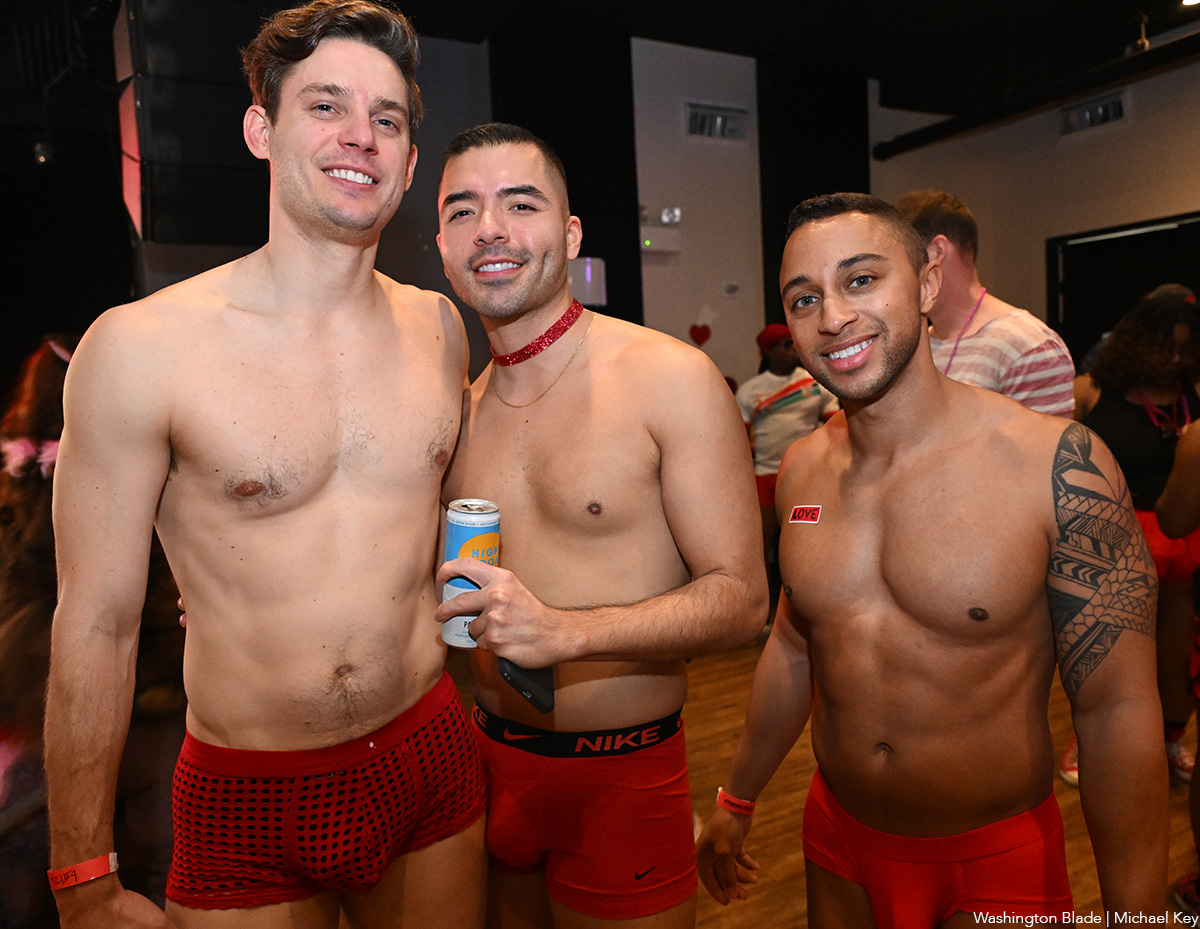
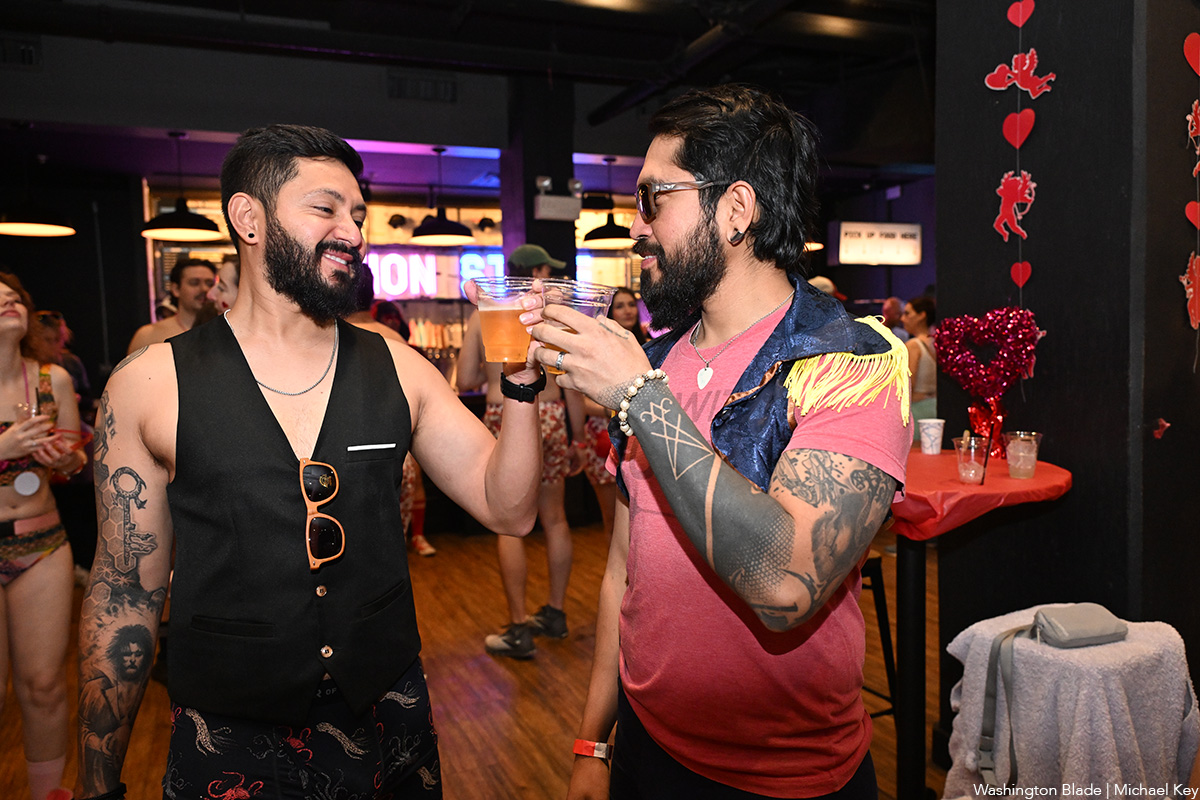
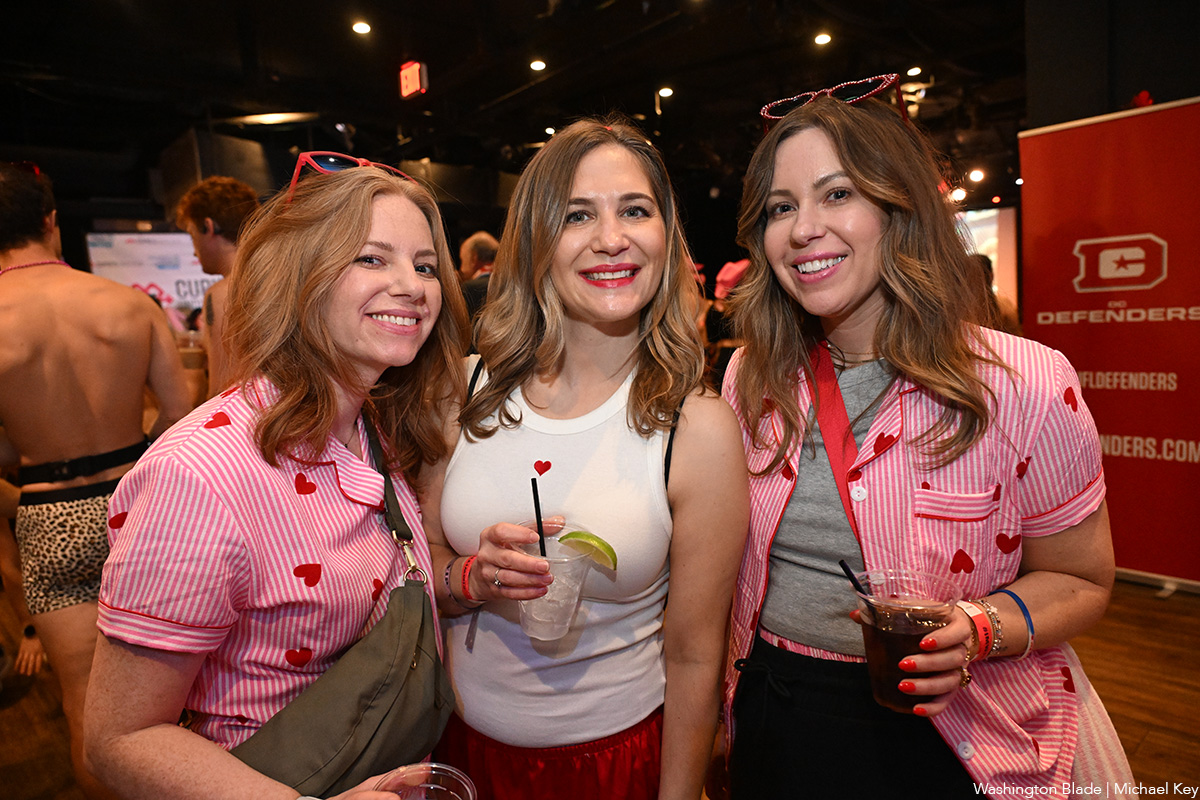
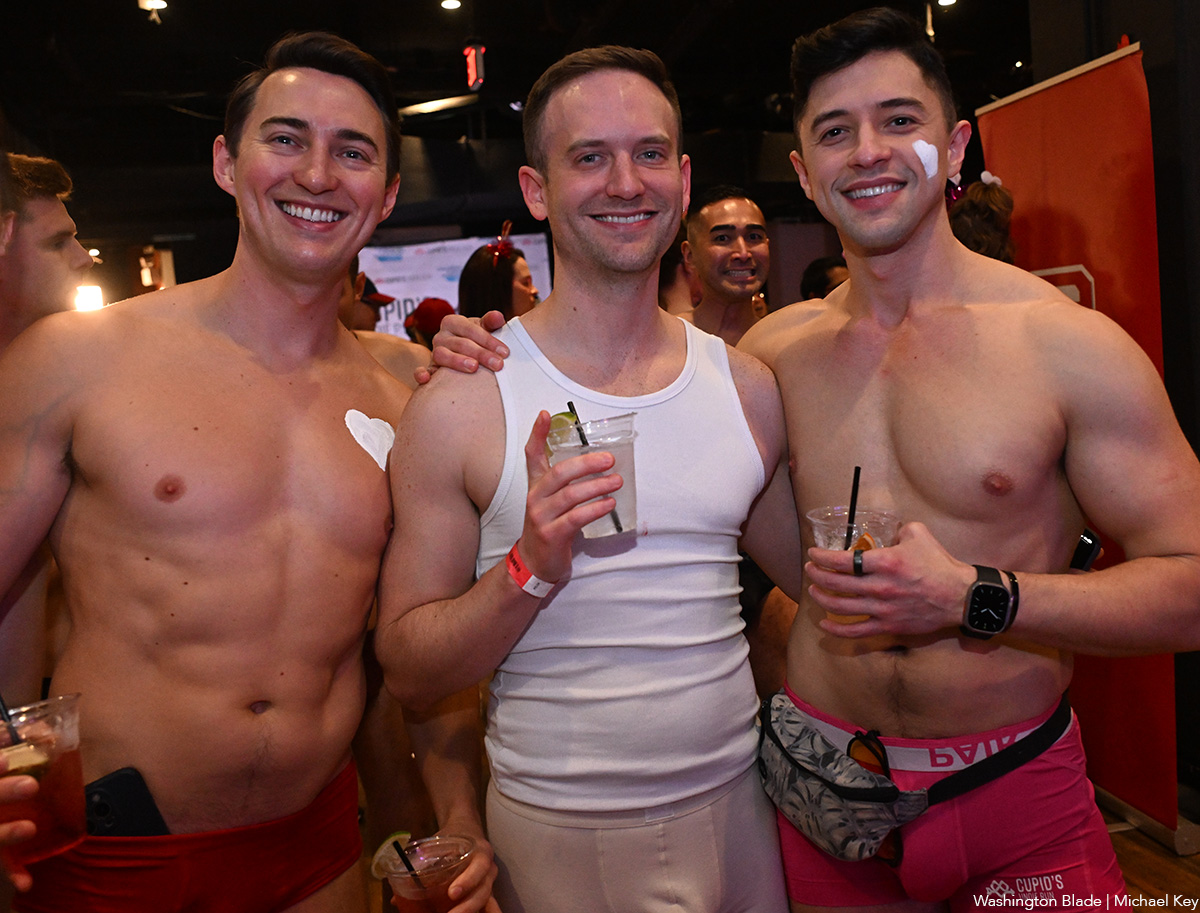
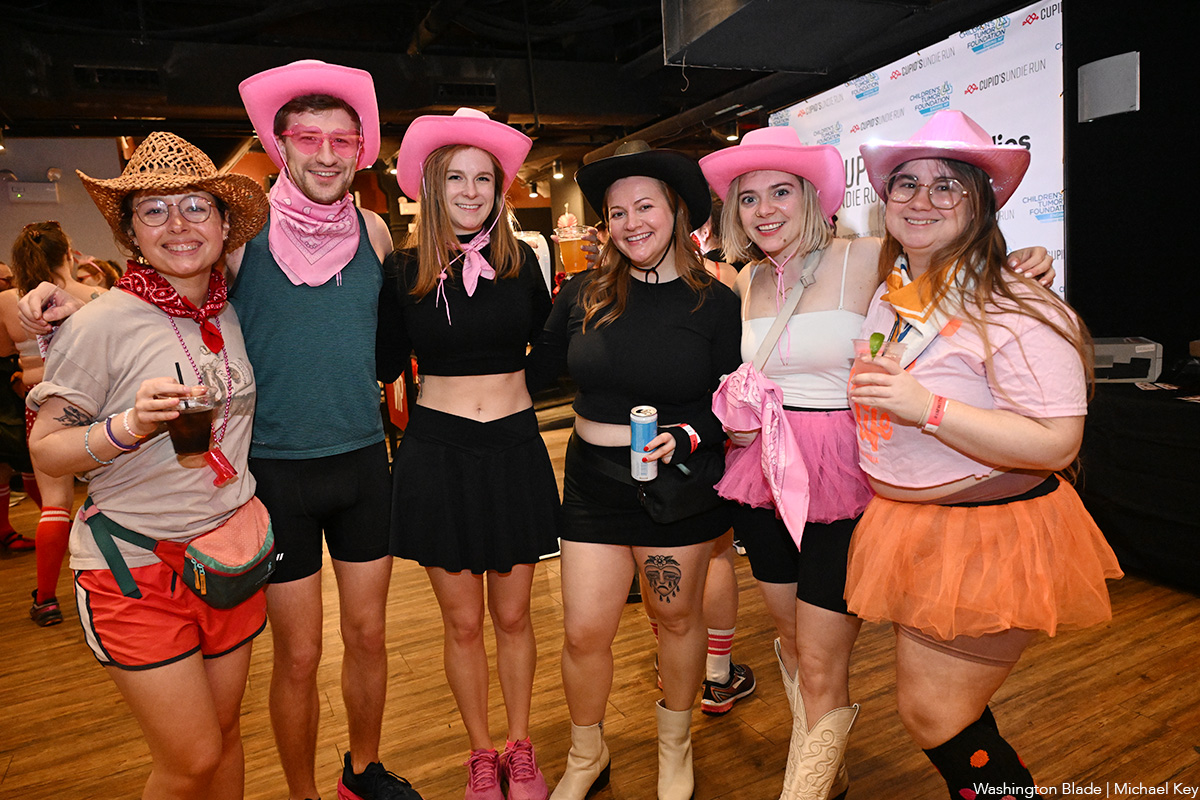
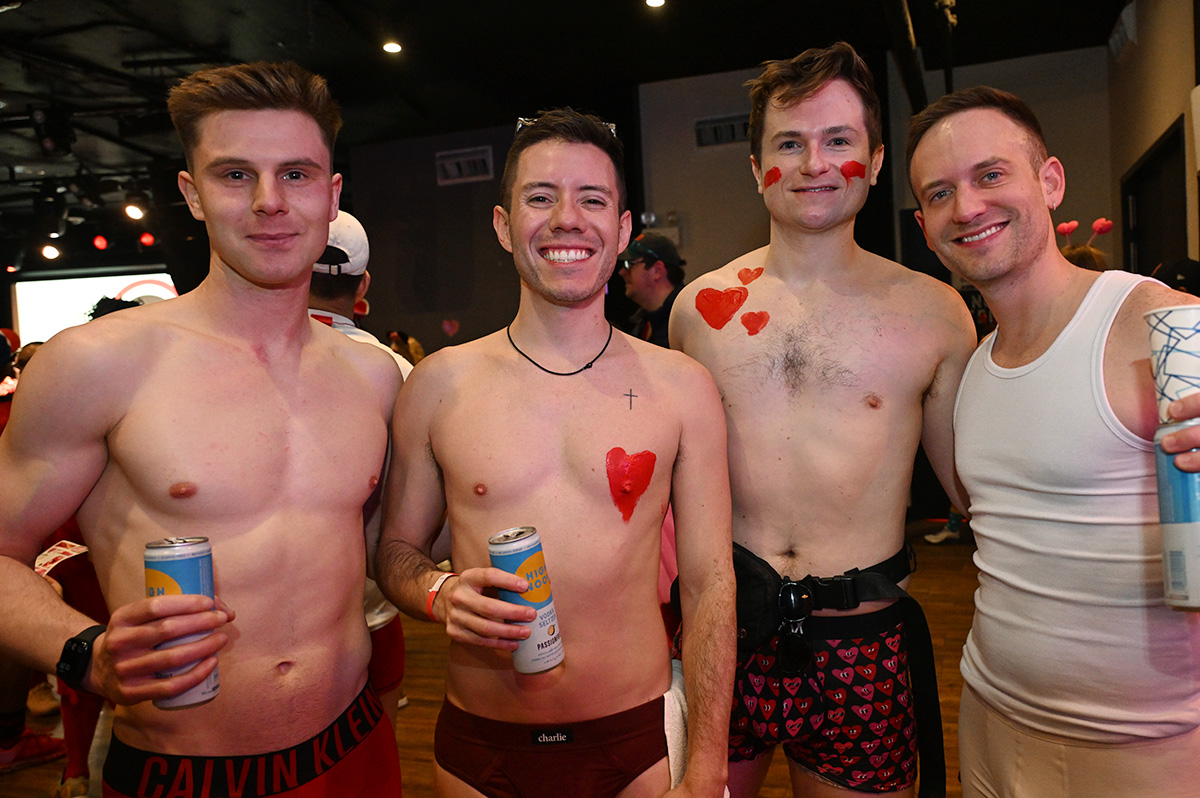
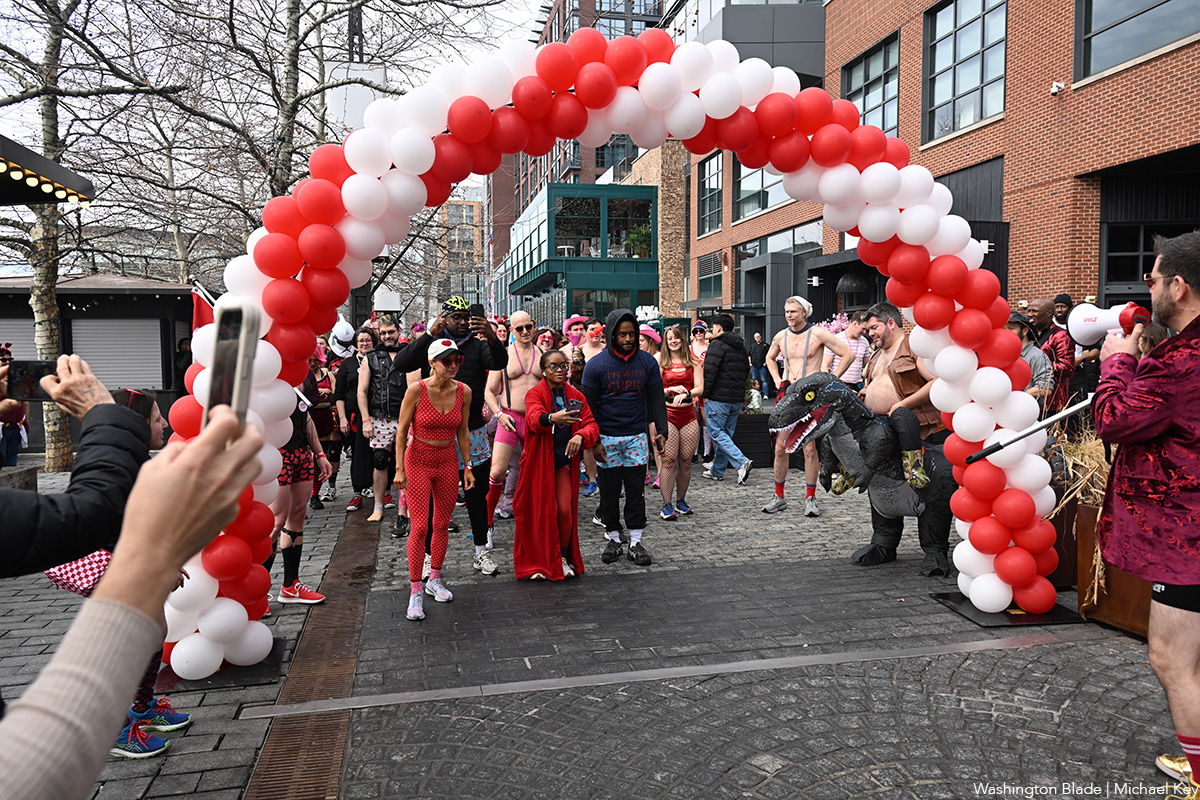
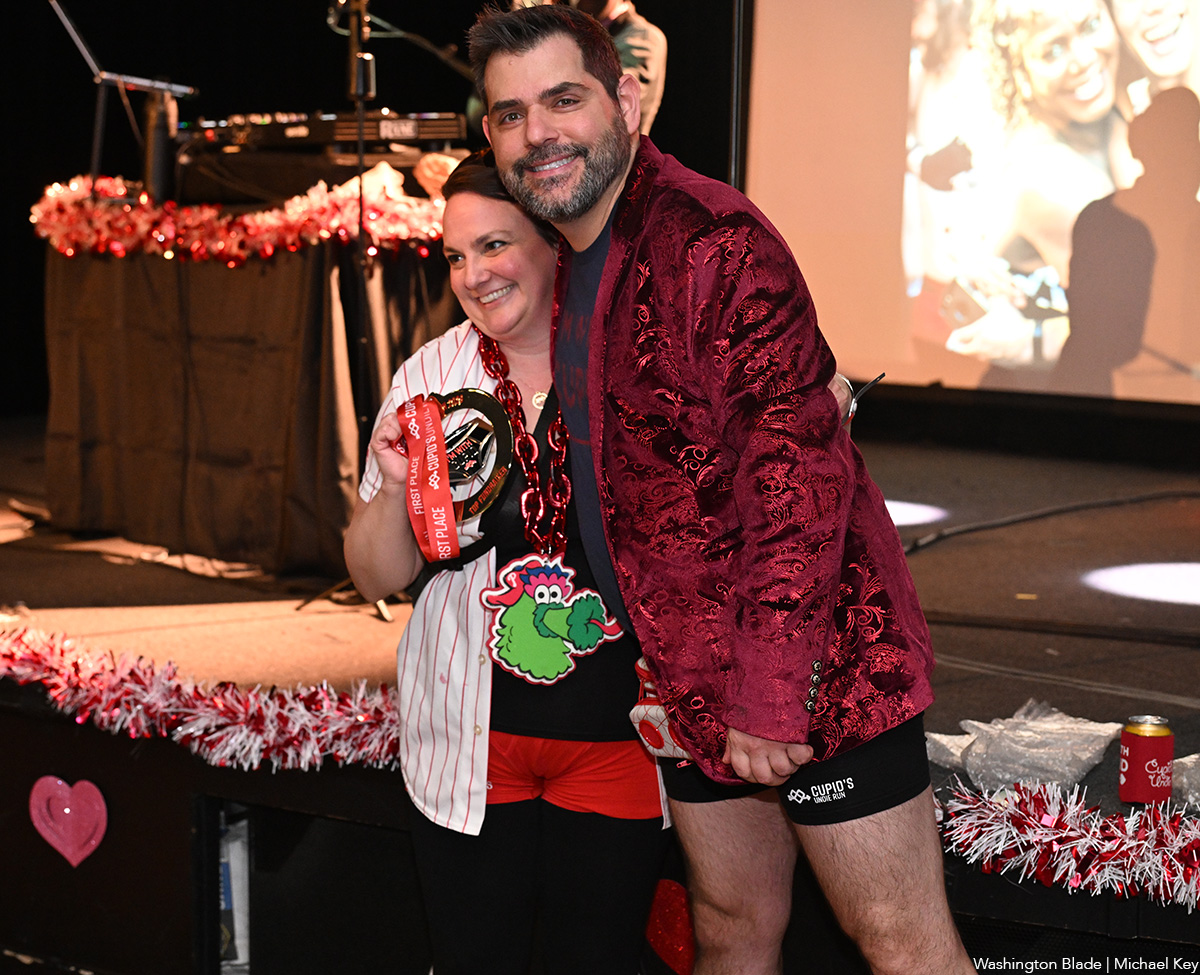
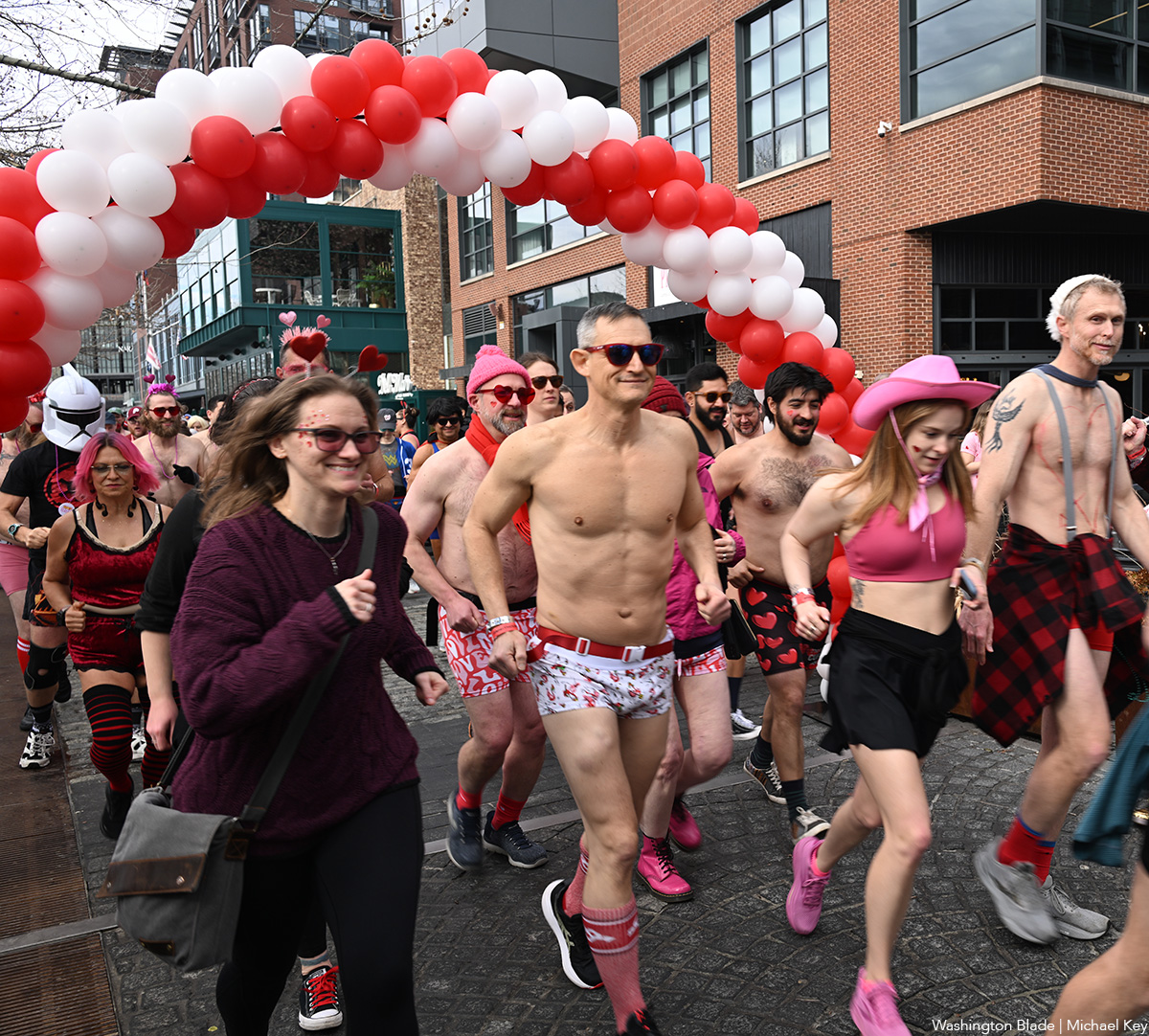
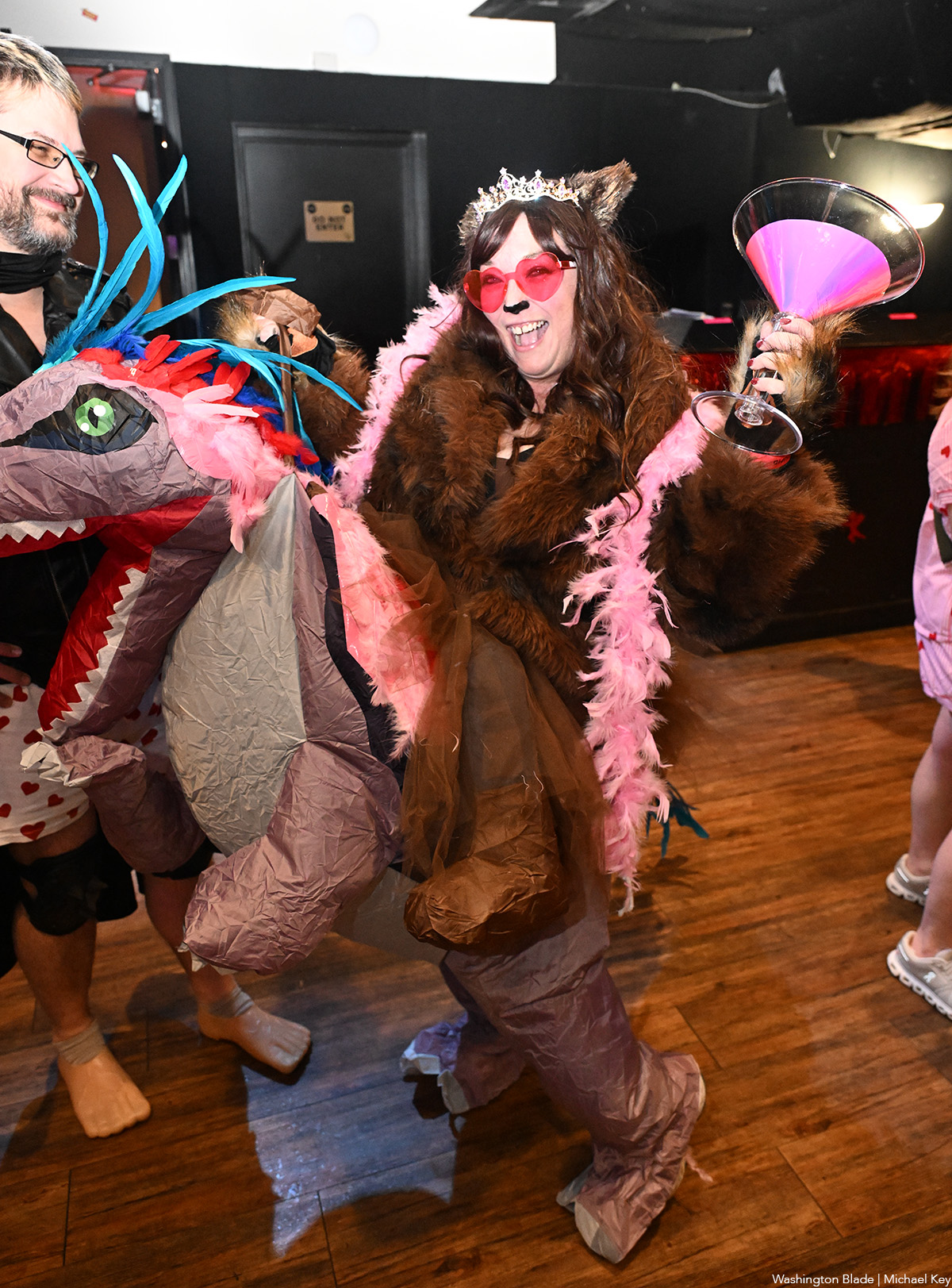
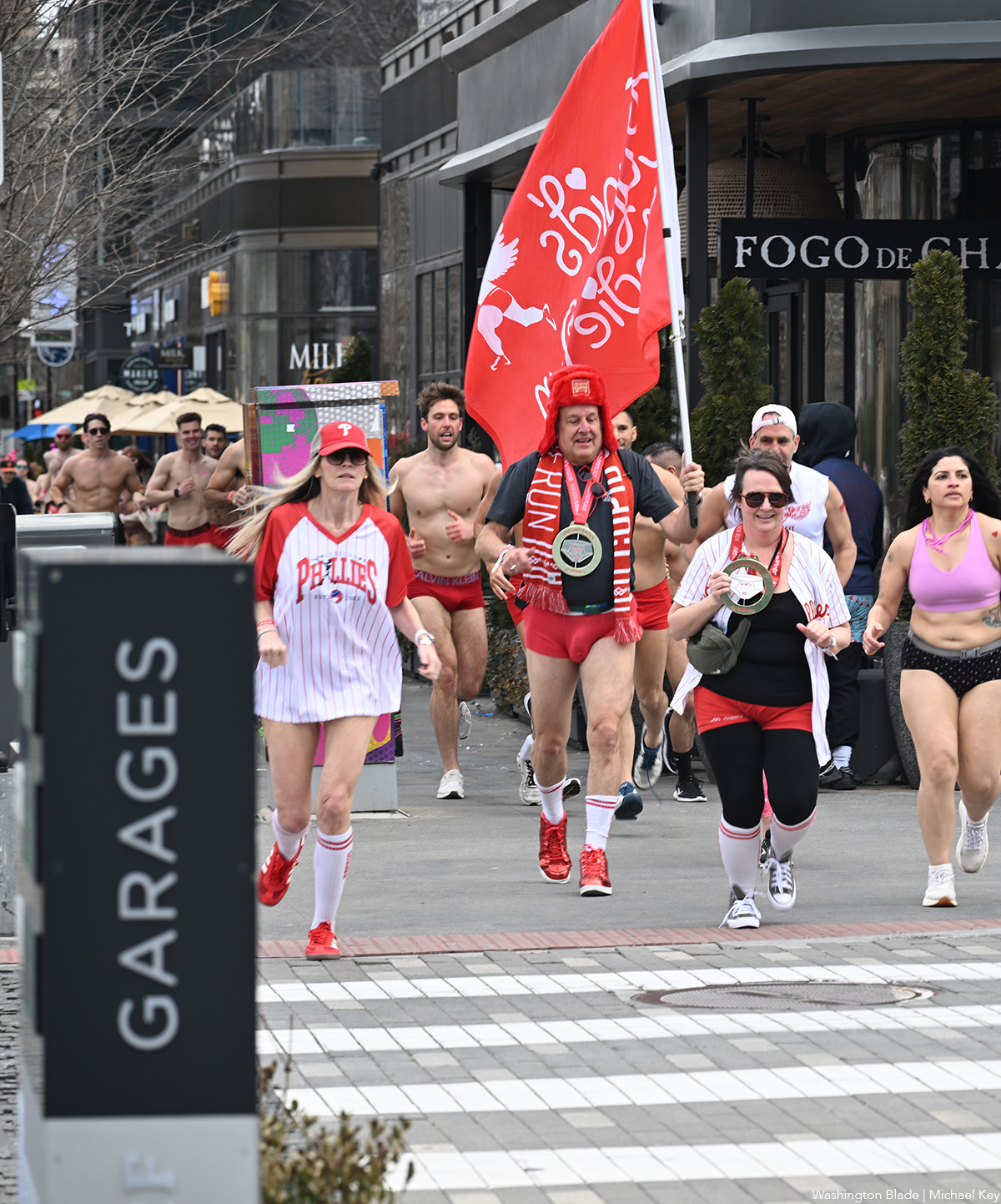
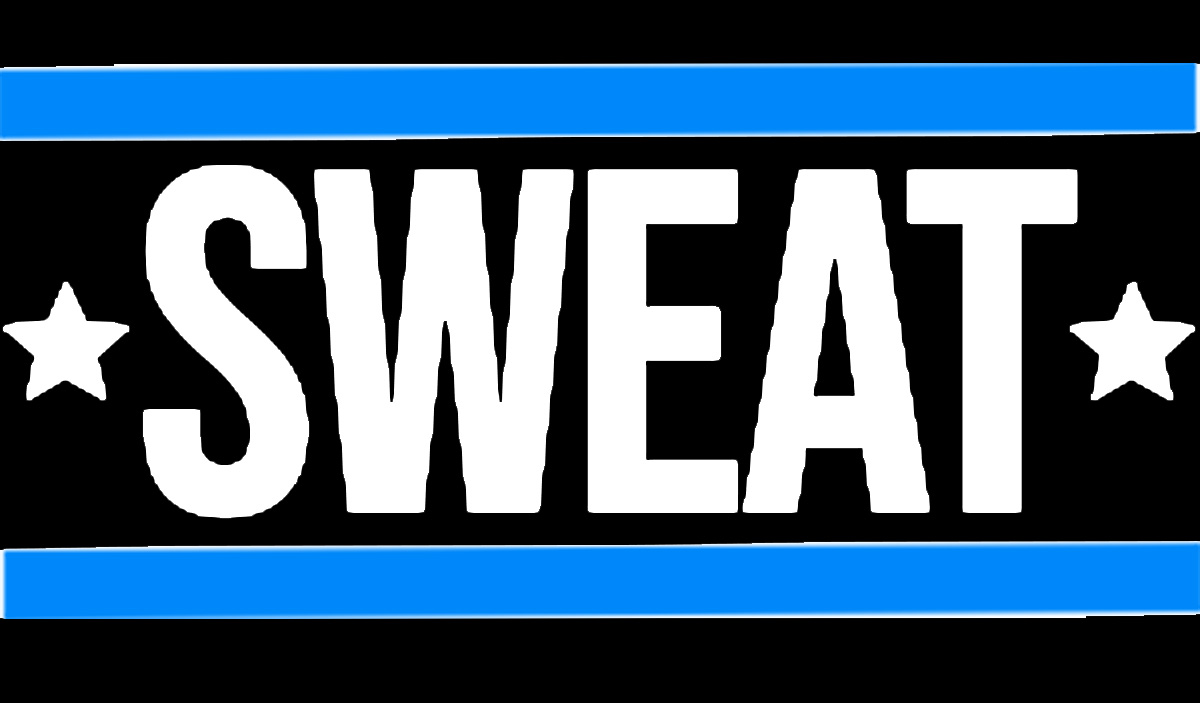
Sweat DC is officially expanding to Shaw, opening a new location at 1818 7th St., N.W., on Saturday, March 28 — and they’re kicking things off with a high-energy, community-first launch event.
To celebrate, Sweat DC is hosting Sweat Fest, a free community workout and social on Saturday, March 14, at 10 a.m. at the historic Howard Theatre. The event features a group fitness class, live DJ, local food and wellness partners, and a mission-driven partnership with the Open Goal Project, which works to expand access to youth soccer for players from marginalized communities.
For more details, visit Sweat DC’s website and reserve a spot on Eventbrite.
-

 National5 days ago
National5 days agoLGBTQ activists mourn the Rev. Jesse Jackson
-

 Massachusetts4 days ago
Massachusetts4 days agoEXCLUSIVE: Markey says transgender rights fight is ‘next frontier’
-

 New York4 days ago
New York4 days agoLawsuit to restore Stonewall Pride flag filed
-

 Opinions4 days ago
Opinions4 days agoGay Treasury Secretary’s silence on LGBTQ issues shows he is scum



















